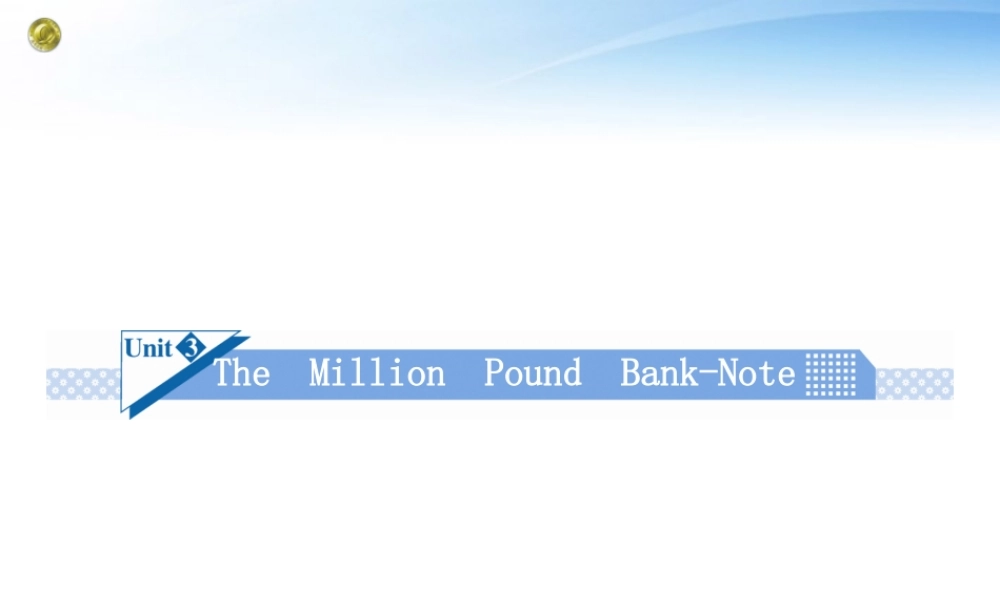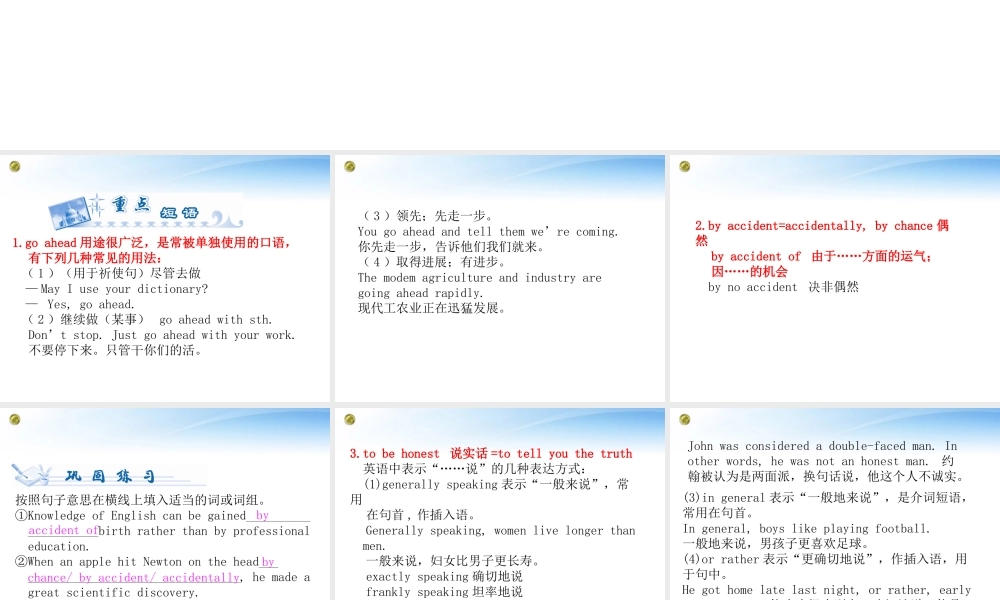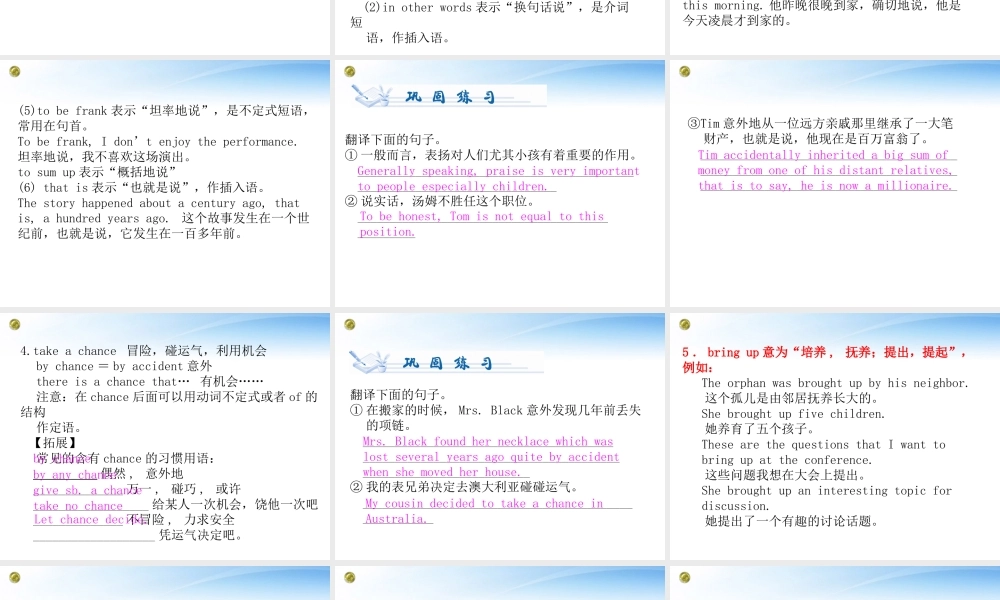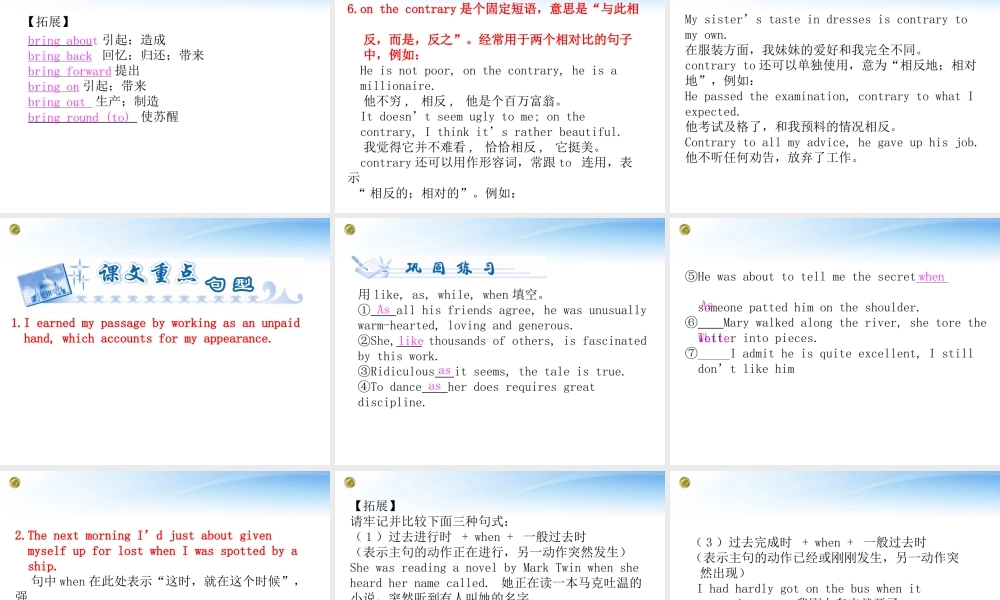新课标 新高考 新理念The Million Pound Bank-Note新课标 新高考 新理念1.go ahead 用途很广泛,是常被单独使用的口语, 有下列几种常见的用法: ( 1 )(用于祈使句)尽管去做 — May I use your dictionary? — Yes, go ahead. ( 2 )继续做(某事) go ahead with sth. Don’t stop. Just go ahead with your work. 不要停下来。只管干你们的活。新课标 新高考 新理念( 3 )领先;先走一步。You go ahead and tell them we’re coming. 你先走一步,告诉他们我们就来。( 4 )取得进展;有进步。The modem agriculture and industry are going ahead rapidly. 现代工农业正在迅猛发展。新课标 新高考 新理念2.by accident=accidentally, by chance 偶然 by accident of 由于……方面的运气; 因……的机会 by no accident 决非偶然新课标 新高考 新理念按照句子意思在横线上填入适当的词或词组。①Knowledge of English can be gained__________ ___________birth rather than by professional education.②When an apple hit Newton on the head___ _________________________________, he made a great scientific discovery.bybyaccident ofchance/ by accident/ accidentally 新课标 新高考 新理念3.to be honest 说实话 =to tell you the truth 英语中表示“……说”的几种表达方式: (1)generally speaking 表示“一般来说”,常用 在句首 , 作插入语。 Generally speaking, women live longer than men. 一般来说,妇女比男子更长寿。 exactly speaking 确切地说 frankly speaking 坦率地说 (2)in other words 表示“换句话说”,是介词短 语,作插入语。 新课标 新高考 新理念John was considered a double-faced man. In other words, he was not an honest man. 约翰被认为是两面派,换句话说,他这个人不诚实。(3)in general 表示“一般地来说”,是介词短语,常用在句首。 In general, boys like playing football. 一般地来说,男孩子更喜欢足球。(4)or rather 表示“更确切地说”,作插入语,用于句中。 He got home late last night, or rather, early this morning. 他昨晚很晚到家,确切地说,他是今天凌晨才到家的。 新课...




